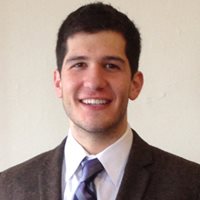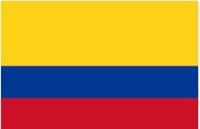Max Feinstein
 Max Feinstein is a combined MD/MA Bioethics student at Case Western Reserve University. Originally from Kansas City, Max graduated from the University of Southern California with a degree in philosophy. He later moved to Boston to take pre-med classes after deciding to pursue a career in medicine. While in Boston, he lived in a soup kitchen, where he prepared meals for the city’s marginalized populations, many of whom spoke only Spanish. Max was inspired by this language barrier to study Spanish, not only to help in the soup kitchen, but also to facilitate physician-patient relationships in his future medical practice.
Max Feinstein is a combined MD/MA Bioethics student at Case Western Reserve University. Originally from Kansas City, Max graduated from the University of Southern California with a degree in philosophy. He later moved to Boston to take pre-med classes after deciding to pursue a career in medicine. While in Boston, he lived in a soup kitchen, where he prepared meals for the city’s marginalized populations, many of whom spoke only Spanish. Max was inspired by this language barrier to study Spanish, not only to help in the soup kitchen, but also to facilitate physician-patient relationships in his future medical practice.
His Spanish studies eventually took him to Bogotá, Colombia, where he honed his language skills before starting med school. Studying Spanish in Colombia inspired Max to identify bioethical and clinical challenges faced by Latin American countries and the U.S. alike. During the summer after his first year of medical school, he returned to Bogotá to investigate how antibiotic resistance poses challenges, ethically and clinically, to health practitioners in Colombia and the U.S. His current research interest lies at the intersection of antibiotic resistance, health policy and the Spanish language.
 Project: "Assessing Healthcare Practitioners Attitudes and Practices Regarding the Diagnosis of Antibiotic Resistant Bacteria in Colombia"
Project: "Assessing Healthcare Practitioners Attitudes and Practices Regarding the Diagnosis of Antibiotic Resistant Bacteria in Colombia"
August 14, 2016 - April 21, 2017
Colombia
What does the Kean Fellowship mean to you?
The Kean Fellowship has provided me with a unique opportunity to spend a year in Colombia studying clinical and public health approaches to the problem of antibiotic resistance. In addition to facilitating my research interests, the Fellowship is enabling me to enhance my Spanish-speaking ability such that I anticipate being able to work with patients and healthcare providers without the need for an interpreter. Finally, the time that I am spending in Colombia, thanks to the Fellowship, is facilitating a meaningful cultural exchange between my Colombian colleagues and myself.
What do you anticipate learning?
The research question I am pursuing with the Kean Fellowship is: Would the health benefits and cost-savings of using molecular diagnostic techniques for bacterial infections outweigh the financial cost in public and private hospitals in Cali, Colombia? In addition to answering this question, I also hope to become comfortable with technical Spanish vocabulary that pertains to infectious diseases, microbiology and clinical medicine.
What interests you about tropical medicine and what problems are you interested in solving?
I conceive of tropical medicine as a field in medicine with a unique ability to bridge cultures and countries by virtue of the traveling nature of infectious diseases. This inherently international aspect of tropical medicine resonates with my passion for traveling and speaking Spanish. Moreover, tropical medicine constantly challenges healthcare professionals with unique ethical challenges ranging from clinical medicine to public health (e.g., at the time of writing this essay, the international health community is grappling with Zika virus).
With the help of the Kean Fellowship, I hope to elucidate how molecular diagnostic techniques may or may not be appropriate for addressing the problem of antibiotic resistance in Colombia. Long term,, I anticipate addressing public health concerns that are hallmarked by delicate ethical dilemmas. Given the ever-evolving nature of tropical medicine, it is hard to predict exactly what these problems may be, but I am certain that the experiences I will have during my Kean Fellowship research year will equip me with the tools to address those problems.